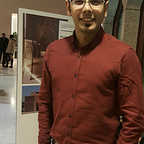One Possible Solution to Growing divisiveness In Society
It is undeniable that we are living in an era of dangerous moral relativism, one in which the traditional distinction between “right” and “wrong” continues to blur. Every event that takes place these days seems to exist in a murky gray area. It is thus becoming very hard to right a wrong when we cannot seem to agree on what is “right” in the first place.
The divisiveness is becoming more and more evident across the world. The United States’ elections are a good example, but a more alarming indicator of this divisiveness is the recent acceptance of the lack of bi-partisan hatred against Nazis. The French elections demonstrate a similar story with Le Penn attracting more than 1/3rd of France’s so called progressive society, which is literally the pioneer of liberalism, and Brexit (beating the same drums, you get the message).
.
Social media is definitely reinforcing our penchant for emotions to guide our decisions rather than logical dialogue, which would have been the reverse in the past. This is now enabling organizers to be faster than before (adding fire to the fuel), and at the same time, the core reasons of the divisiveness and hatred continue to be very basic — education and economics.
Let´s look at history for situations similar to that of today.
- The case of tribal cooperation around Yellow River.
Thousands of years ago, people lived beside the “Yellow river” in China in many different tribes and all of them were dependent on the river for survival and prosperity. However, all of them also suffered from periodical floods and droughts and no tribe could do anything about it because each of them controlled a tiny section of the river. Then through a long and complicated process they all came together to form the Chinese nation which controlled the entire river and had the ability to bring thousands of people together to build dams and canals. This prevented the horrors of floods and droughts which eventually lead to rising prosperity for all. In the 21st century, the “Yellow River” takes a bow and in comes the “Cyber River”. Technology cannot be regulated by a single country. So collectively, there has to be global cooperation to bring all the countries together otherwise, people in the country will start drowning in the social and economic problems that will be created as a result of technological disruption and Nationalist politics.
2. Agricultural Revolution bringing value to “human collective” but not to the Individual lives
Before the Agricultural revolution, people used to move around in the jungle hunting for food for survival. After the revolution, they started harvesting fields for goods. It was good for “human collective” but if you look at individuals, the life of a small 1% elite became considerably better and the life of majority became worse. In the 21st century, the technological disruption will benefit the tiny elite and will considerably be bad for the masses. There will be people who will lose their jobs due to robots and technological advancements. In the US, robots will take away jobs not the Mexicans or Chinese so unless US builds a barrier or wall on California borders, this is bound to happen.
The possible solution to these global issues is Global cooperation and dialogue. Learning from history, the change starts from a personal level. Personal decisions should be anchored around having dialogue with trusted people who can provide guidance. It’s important to listen to differing views to decide on the truth.
For some people, religion can provide an important framework to guide them. Historically, societies have turned to religious leaders for guidance on making difficult decisions. But it is not only religious leaders who can help to clarify the personal decision-making process. In the modern era, some individuals — such as Nelson Mandela, Barack Obama, and His Highness the Aga Khan IV — have earned the “moral authority” to establish how to think about taking responsibility for one’s decisions.
As His Highness the Aga Khan IV stated nearly a decade ago, “Instead of shouting at one another, we must listen to one another — and learn from one another.” As he suggests, constructive dialogue is of the utmost importance in restoring some measure of clarity to the personal decision-making process.
We need to be clear and sure that the leaders chosen are indeed a representative of the followers. Let´s live our lives with more openness to hear and share in the suffering and joys of others. Let’s not wait for a catastrophe like hurricane IRMA to make us realize that the issues like climate change, technological disruption and refugee movements are global and can´t be fixed with nationalistic or conservative policies. This, perhaps, is the only way to reverse the growing intellectual and moral divisiveness in our society.
